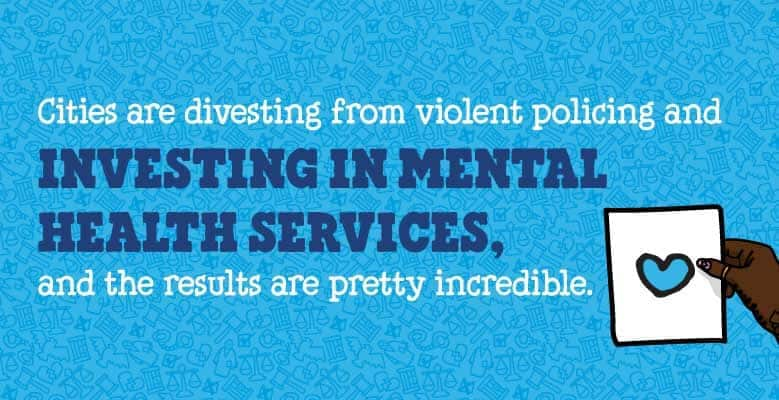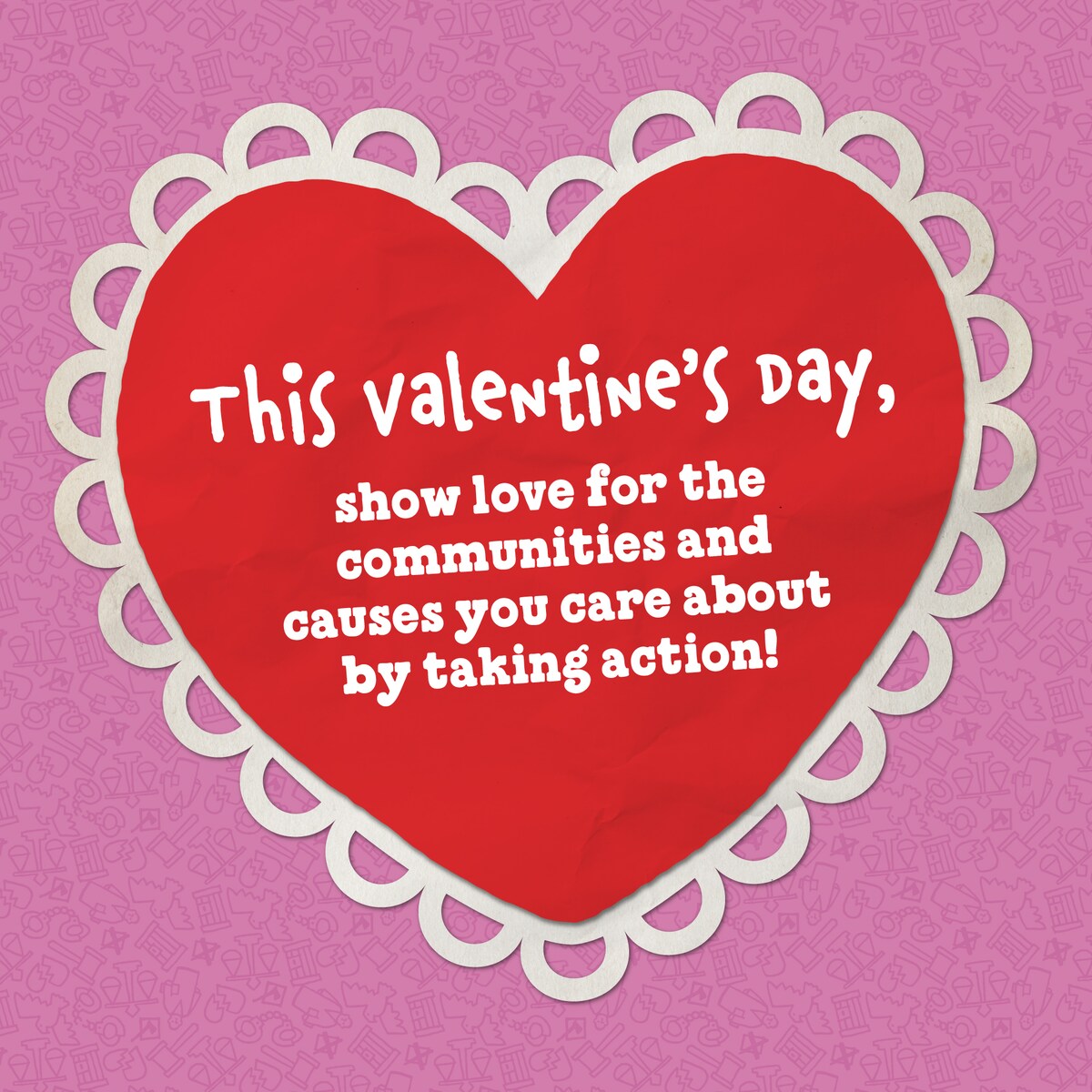November 4, 2021

Police violence is an epidemic in America—and people experiencing mental health crises make up a huge percentage of its victims. Almost 25% of all people killed by police in this country since 2015 are known to have been struggling with a mental health issue.
When armed police officers respond to calls related to mental health, people who need and deserve expert support and care too often wind up dead. The good news is that some cities are beginning to do something about it. Here’s how three cities are creating true public safety by divesting from violent policing and investing in mental health services.

Take Action Now!
-
EUGENE, OREGON
The Eugene CAHOOTS (Crisis Assistance Helping Out on the Streets) program dispatches mental health workers for calls related to issues like mental health episodes, welfare checks, and public intoxication. Founded in 1989, CAHOOTS has been operating for more than 30 years. The program’s unarmed experts are able to resolve most issues on their own, without ever involving the police—building trust with the people they serve and helping keep everyone safe.
According to the program’s own estimates, CAHOOTS
● Handles 20% of ALL 911 calls
● Saves the city approximately $8.5 million on policing annually
● Requested police backup only 150 times out of a total of about 24,000 calls in 2019
-
DENVER, COLORADO
Denver’s STAR (Support Team Assisted Response) program launched in 2020. STAR sends mental health clinicians instead of police to respond to community concerns like mental health crises and trespassing. The program is still just getting started and does not yet have enough staff to respond to all such calls throughout the entire city, but it’s already succeeding in its goal of reducing the number of interactions between armed police and people involved in non-violent, low-level incidents.
● In its first six months alone, STAR responded to almost 800 incidents
● None of them required police or led to arrests
● With funding in place, STAR appears set to increase its hours of operation and expand citywide
-
OLYMPIA, WASHINGTON
Olympia launched a Crisis Response Unit (CRU) in 2019 of six behavioral health specialists who respond to calls related to mental health, homelessness, and substance use. Olympia’s Familiar Faces program was created to provide additional “wraparound” support for CRU’s clients experiencing more complex mental health or behavioral issues who need longer-term care and assistance. Together, CRU and Familiar Faces build relationships and trust with people who otherwise would face repeated interactions with police and the criminal legal system.
● Most calls to CRU come directly from service providers and other groups who do not want to involve the police
● Between April and June of last year, CRU had more than 500 contacts with the community (significant, in a city of 52,000); police were on hand only 86 times
Police Violence, Racism, and Mental Illness
Police kill about 1,000 people every single year, and Black people are 3x more likely to be killed by police officers than white people. And people experiencing a mental health crisis are at even greater risk: They’re 16x more likely than the average American to be killed by police. More and more Americans recognize that racism is baked into American policing and that police violence disproportionately impacts Black and Brown people. But it’s safe to say that far fewer of us fully understand the danger that armed police pose to people suffering a mental health crisis.
Being Black in America often means experiencing trauma every day—not just from police, but from the cumulative impact of relentless, systemic racism. Racism and white supremacy have an enormous effect on the mental health of Black people, so it should come as no shock that Black adults are more likely than white adults to report “persistent symptoms of emotional distress, such as sadness, hopelessness, and feeling like everything is an effort.” But largely due to racism and how it limits the options and resources available to Black people, only 1 in 3 Black adults who need help actually get it.
All of this is why Black people experiencing a mental health emergency are in such great danger of being killed by the police. And it’s why we need to divest from policing and invest in mental health services instead.
Saving Lives
Taking inspiration from programs like CAHOOTS, more than a dozen cities (including Albany, NY; Albuquerque, NM; Austin, TX; Birmingham, AL; Saint Paul, MN; Providence, RI; Louisville, KY; Boston, MA; Chicago, IL; Phoenix, AZ; San Antonio, TX; and Seattle, WA) are now developing programs that would send unarmed experts instead of police into the community to assist people experiencing mental health crises, homelessness, and substance use disorders.
The changes these cities are making will save lives. To further protect Black people and people experiencing mental health crises, and to ensure true public safety across the US, show your support for the People’s Response Act today.



